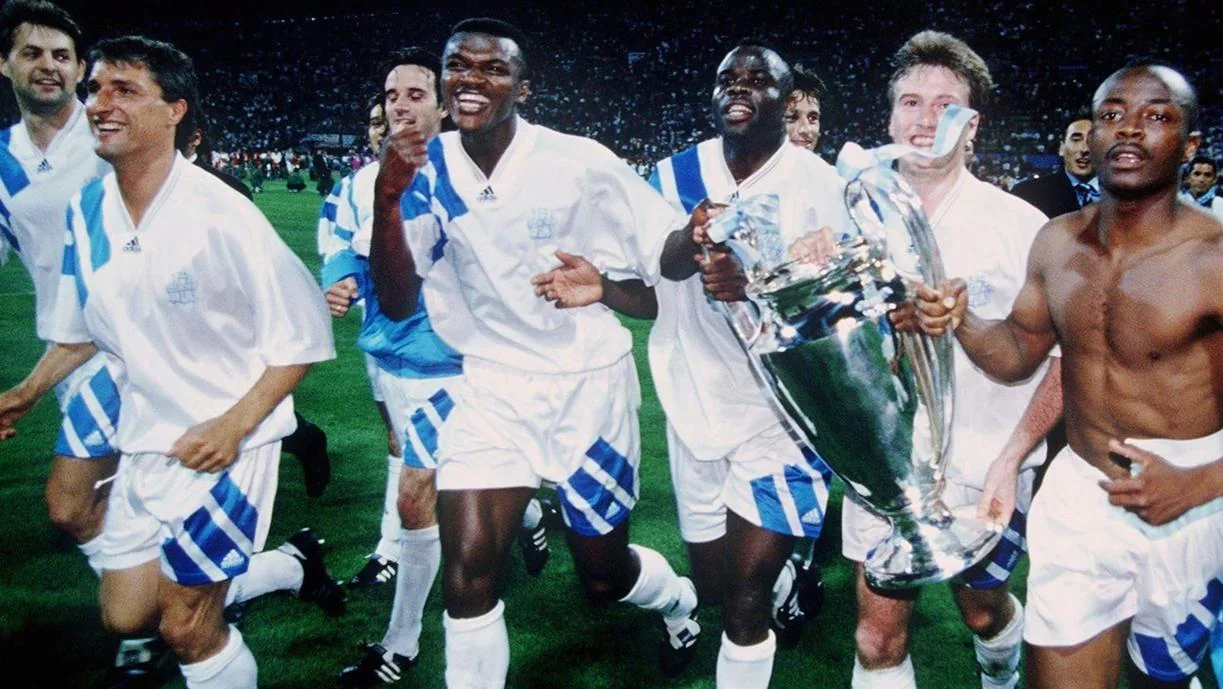With a new format for the 2024-25 season, we break down all the changes to the UEFA Champions League, and examine the potential positive and negative outcomes.
In its various forms, names, and iterations, what we know today as the Champions League has been the pinnacle of club football for decades. The tournament has seen the rise of football’s biggest stars, historic achievements, great comebacks, and unthinkable miracles.
But while the drama and magnitude around the Champions League has been more or less constant, its format has been anything but. From its revamp in 1992 with a name change to a steady expansion from eight to now 32 group stage teams, we’ve seen plenty of flux in the tournament’s storied history.
With yet another switch-up added into the mix for future seasons, we take a look back at some of the biggest evolutions throughout the UEFA Champions League’s existence, as well as the ones set to hit next season.
Big Changes Over the Years
Perhaps the most visible change in the tournament’s history came in 1992, when it rebranded from the European Cup to the UEFA Champions League. However, the year before introduced a radical switch as well, moving from a 32-team bracket to a group stage format.

The group stage would have eight teams until 1994, which saw the number jump to 16. Three years later it would increase to 24, and in 1999, we saw the introduction of two group stages. The dual-group format would last until 2003, when we saw the 16-team knockout stage format introduced that remains to this day.
For a while we did not see any major changes made to the format until 2021, when UEFA decided to abolish the away goal rule. It was a decision that was based on “sporting justice” according to UEFA, and it has certainly changed the approach from teams in knockout games. However, an argument can be made that the entertainment value in the knockout stages has decreased following the abolishment of the rule.
Now, the UCL is set to undergo its biggest change in decades.
A Response to the Super League
The news of a Super League in 2021 by Europe’s biggest clubs spooked UEFA into making changes to the Champions League and European football, which are set to be in effect starting next season.
An exciting new era for European club football awaits 🤩
Here’s how the #UCL will look from 2024/25 👇 pic.twitter.com/mEffFOpX2O
— UEFA Champions League (@ChampionsLeague) March 4, 2024
The current eight-group, 32-team format will be replaced by a single 36-team league. Each team will play eight league stage matches against eight different clubs, four at home and four away. The top eight teams will advance automatically to the round of 16, with the next 16 clubs playing a two-legged playoff based on seeding to earn a spot in the next round. From there it’s business as usual.
UEFA claims this new system will allow more matchups between the top teams and will allow teams to test themselves further with different opposition.
The Positives
A major plus with this change is that the UCL group stage really needed revamping, or in this case abolishment. Over the last few years, the group stage has become quite stale, and now the idea of playing a different team each time in the league phase can make things more intriguing.
One of my favorite changes is that none of the eliminated teams will drop to the Conference or Europa Leagues. While that will mean some teams will take a further financial hit as they will not even have Europa money to gain after elimination from UCL, it creates a more entertaining Europa League and creates further unpredictability in the competition. It raises the stakes in both tournaments to a different level.
My other positive is that UEFA did not only focus the revamp on the Champions League, but it made sure to revamp Europa and Conference League in a comparable way, albeit with less teams. It shows the governing body’s dedication to all competitions and not just the premier one. The excitement levels will increase within all competitions.
Negatives
The one negative I have is the extra games that players will have to play. I think the fixture congestion in football has already gone too far, as players are having to play an unsustainable number of games throughout the year.
Now they’ll have more on their plates, as the new UCL format will add an extra four matches for the majority of the teams. The Club World Cup is set to get a revamp as well, and with the expansion of international tournaments like the Leagues Cup, it seems like the fixtures in football never stop. The added workload could result in even more serious injuries than we’ve seen in recent years, which in turn could cut the careers of some players short.
Sure, it would be great to have a more exciting UCL atmosphere, but what good would the tournament be if the top players aren’t playing in it? We’ll have to see how the additional games in the schedule affect the health of the world’s top teams — because if we see more players going down, the juice might not ultimately be worth the squeeze.








